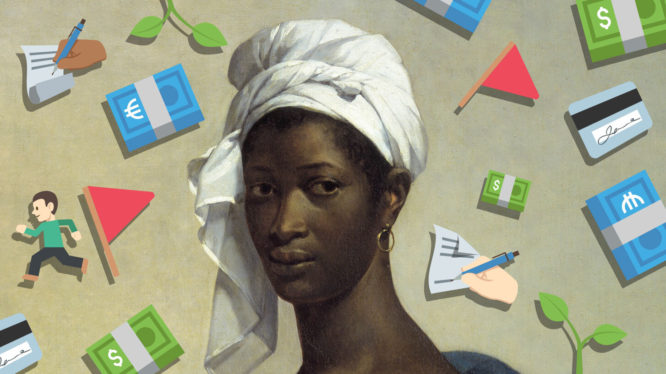In France, Shaila Sahai says pitching investors usually goes like this.
She is a woman, Black and a CEO, and when she walks into a meeting with investors, armed with a slide deck for her fintech startup We Take Part, she’s often greeted with bafflement. “They are surprised, and they can’t hide it,” she told me.
She’ll go on to pitch her company, and then: “They usually just leave the conversation,” she said. “I’ve had people say, ‘Oh, okay, nice, very interesting. Thank you. See you soon.’ And we were in the middle of a conversation.”
In France, Sahai isn’t alone in facing this almost systemic avoidance of people who look like her, but you wouldn’t be able to find any proof of it. The French startup ecosystem for Black founders is shrouded in mystery, especially because France’s embrace of universalism and its color-blind approach to economic and social policy has meant that there is little to no data or visibility into the startup and venture capital industry’s racial and ethnic diversity.
The country does not track its racial diversity metrics (former French president Nicolas Sarkozy tried and failed to change that about 14 years ago), meaning that while racism continues to exist in the country like everywhere else in the world, there is no hard evidence of that racism. Many Black founders are reluctant to draw attention to themselves and instead move in silence, contributing to a lack of success stories about them.
We have to fight all these stereotypes to prove we can do interesting things. Rodolphe-Emmanuel Hospice, founder, Clickdoc
For those looking to break into the tech sector, this lack of information makes it look like there is nothing happening within venture capital for Black founders.
Naturally, that isn’t true: Laura Pallier raised a $20 million Series A for her fintech SaaS platform Regate last September; Alvyn Severien closed a $13 million Series A for his algae products company Algama in January; Nelly Chatue-Diop raised $2 million last year for her web3 investment startup Ejara; Bruno Mendes Da Silva raised $3.5 million last year for his AI-focused data startup Heex Technologies; and Sebastien Luissaint raised $2.4 million last August for Myditek, an agtech startup.
This list isn’t comprehensive, of course, but it’s representative of the fact that Black founders can and do run fast-growing businesses in tech and other fields. “We are invited to speak, we are invited onstage to testify,” Sahai said. “But we have more to bring to the table than just testaments. We should be invited to the decision-making process. We should be funded. And that’s it.”
“It’s impossible that you can be their equal”
Black people in France have faced a long history of discrimination that’s been swept under the rug. Many Black people in France hail from or are descendants of immigrants from its Outremer or “overseas departments” — mostly islands such as Réunion and Martinique — and are legally French citizens. Others have ancestors from former French colonies in Africa, including Côte d’Ivoire, Mali and Senegal.
Sahai, who was born and raised in France, believes the country is still “embarrassed” about its history of enslaving and colonizing Africans and Afro-Caribbeans. Despite that, deep-seated racial stereotypes and prejudices still fester in the country, manifesting in the form of economic discrimination against Black entrepreneurs, a few founders told TechCrunch+.
Compared to the U.K., where there have been more open and honest conversations about racism and colonialism, she said the French don’t want to acknowledge their history.
What’s it like being a Black founder in France? by Dominic-Madori Davis originally published on TechCrunch
https://techcrunch.com/2023/07/04/whats-it-like-being-a-black-founder-in-france/



